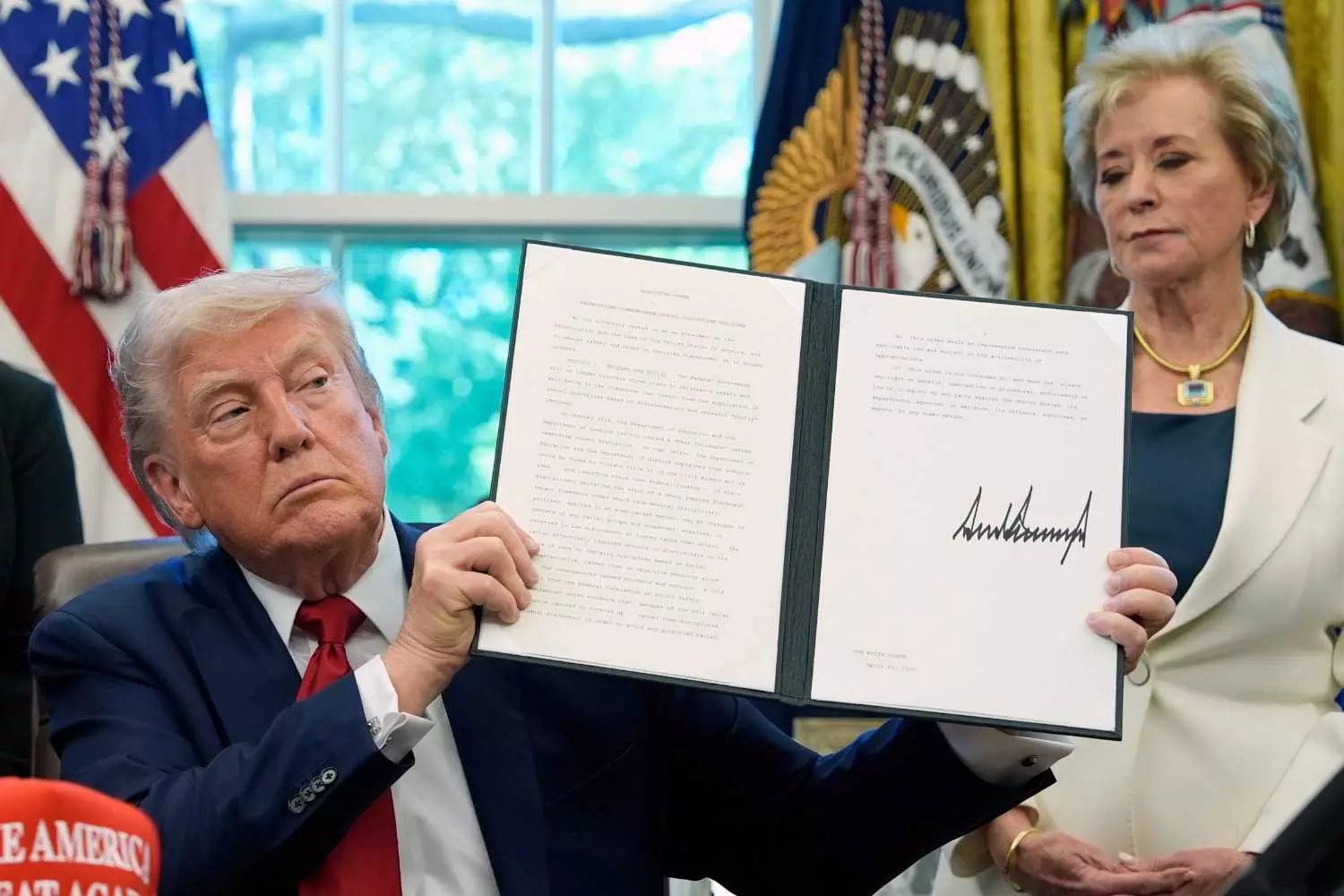
Appeals court allows Trump to continue collecting tariffs under emergency powers law for now
Appeals court temporarily halts lower court’s order and grants emergency motion from Trump administration arguing that a halt is ‘critical for the country's national security’

A federal appeals court on Thursday (May 29) allowed US President Donald Trump to continue collecting tariffs under an emergency powers law for now, as his administration appeals an order striking down the bulk of his signature set of economic policies.
National security
The Court of Appeals for the Federal Circuit granted an emergency motion from the Trump administration arguing that a halt is “critical for the country's national security".
Watch | Did Trump dangle tariff carrot to broker Indo-Pak truce? I Discussion
The appeals court temporarily halted the order from a federal trade court issued a day before.
The court has asked the plaintiffs in the cases to respond by June 5 and the administration by June 9.
Earlier court ruling
Trump is facing several lawsuits arguing his “Liberation Day” tariffs exceeded his authority and left the country's trade policy dependent on his whims.
On Wednesday, a three-judge panel of the US Court of International Trade ruled that Trump overstepped his authority when he invoked the 1977 International Emergency Economic Powers Act to declare a national emergency and plaster taxes – tariffs – on imports from almost every country in the world.
The ruling was a big setback for Trump, whose erratic trade policies have rocked financial markets, paralysed businesses with uncertainty and raised fears of higher prices and slower economic growth.
“The worldwide and retaliatory tariff orders exceed any authority granted to the president by IEEPA to regulate importation by means of tariffs," the court wrote, referring to the 1977 International Emergency Economic Powers Act.
Also read: Trump-Musk bromance, a rollercoaster of endorsements and policy shifts
Opposition to Trump’s tariffs
At least seven lawsuits are challenging the levies, the centrepiece of Trump's trade policy.
Tariffs must typically be approved by Congress, but Trump says he has the power to act because the country's trade deficits amount to a national emergency.
He imposed tariffs on most of the countries in the world at one point, sending markets reeling.
The plaintiffs argued that the emergency powers law does not authorise the use of tariffs, and even if it did, the trade deficit does not meet the law's requirement that an emergency be triggered only by an "unusual and extraordinary threat".
The US has run a trade deficit with the rest of the world for 49 consecutive years.
Impact of tariffs
Trump imposed tariffs on most of the countries in the world in an effort to reverse America's massive and longstanding trade deficits.
He earlier plastered levies on imports from Canada, China and Mexico to combat the illegal flow of immigrants and the synthetic opioids across the US border.
His administration argues that courts approved then-president Richard Nixon's emergency use of tariffs in 1971, and that only Congress, and not the courts, can determine the "political" question of whether the president's rationale for declaring an emergency complies with the law.
Also read: Federal court blocks Trump from imposing sweeping tariffs under emergency powers law
Trump's Liberation Day tariffs shook global financial markets and led many economists to downgrade the outlook for US economic growth.
So far, though, the tariffs appear to have had little impact on the world's largest economy.
(With inputs from agencies)

